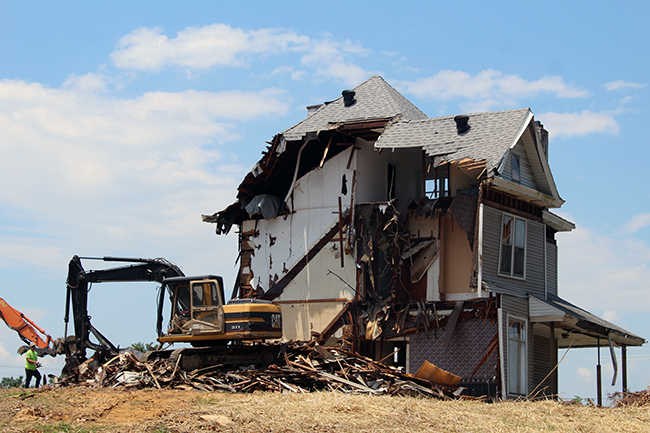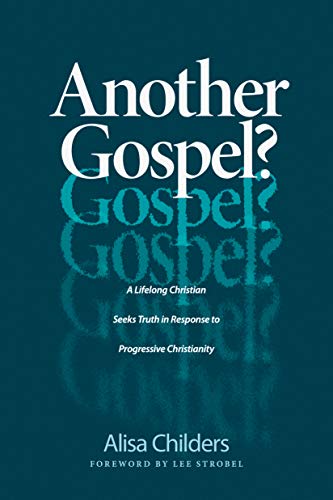Lifeway Research, a Christian research organization, published a survey this week that finds almost 3 in 4 pastors (73%) are aware of the "deconstruction movement."
More than a quarter (27%) of those say people in their churches have deconstructed their faith.
What is faith deconstruction?
"Deconstruction" is the heading most recently applied to the process of questioning, doubting, and ultimately rejecting aspects of the Christian faith.
Please. Be informed, not misled.
Lifeway Research has done an in-depth survey which reveals the breakout in various churches and church groups of the awareness of the movement and the pastor's awareness of the movement.
They found that small churches with congregations of 50 or less are experiencing "deconstruction," while larger churches are impacted by the movement.
But despite the growing awareness among pastors, it is much easier to see people in the midst of deconstructing on social media than within churches.
This movement is very deceptive because people with honest spiritual and theological questions should be able to ask them in the context of the church, yet the "deconstruction movement" is, for the most part, an attack on the biblical church and the most important tenets of the Christian faith.
A fundamental belief in Christianity is that of man's limited understanding compared to God's unlimited understanding.
"Deconstruction" claims to explore the deepest, most important questions of Christianity although its motivation, as a movement, is not to understand, but to undermine.
Scripture commands us to scrutinize our faith by fact-checking--- Acts17:11. However in practice, the deconstruction movement is almost always a demolition derby, replacing uncomfortable biblical tenets of faith with culturally or personally popular ideas. Such as affirming the LGBTQ agenda is expressing God's Love, same-sex marriage is equal to traditional, biblical marriage between a man and a woman because they were born that way. Abortion is a way of celebrating life by one's freedom to choose.
The point of deconstructive analysis is to "restructure" or "displace" the opposition, not simply reverse it.
Progressives---religious and secular, are big on ideas and theories, but short on understanding beliefs and theories create actions and actions create consequences.
The personal journey of Alisa Childers.
Alisa is a well-known author, speaker, and blogger. She tells her story in her book titled, "Another Gospel." Author Lee Strobel wrote the Forward.
This is some of her personal journey to rediscover her Bible-based Christian faith. And what she learned along the way:
Many years ago, my Christian beliefs were challenged intellectually by a progressive Christian pastor. It threw me into deconstruction that took several years to fully come out of. I found out later that he himself had already deconstructed and had hoped to propel his congregation into deconstruction so he could convert them to progressive Christianity. He was very good at it. In fact, he was almost totally successful. A few of us came back around to a historically Christian understanding of the gospel, but most did not.
Because of this, when “deconstruction stories” started popping up in my social media newsfeed, along with hashtags like #exvangelical and #deconstruction, I paid attention. I’ve been following along, seeking to understand what people mean by those words.
She says, "I witnessed a hashtag turn into a movement."
As of today, [Feb. 2022], there are 293,026 posts on Instagram utilizing the hashtag #deconstruction. The vast majority are from people who’ve deconverted from Christianity, become progressive Christians, embraced same-sex marriage and relationships, rejected core historic doctrines of the faith, or are on a mission to crush the white Christian patriarchy. There are a few photos of deconstructed clothing (apparently this is a thing?) and a scant few sneaky posts from evangelicals attempting (mostly unsuccessfully) to convince the deconstructors that Jesus is the way. A plethora of insults, mockery, and anger are hurled at the church, along with memes stating, “I regret saving myself for marriage,” and “Good morning! It’s a great day to leave your non-affirming church.”
Online, there are countless deconstruction therapy and counseling sites which will facilitate your deconstruction and reconstruct you with mindfulness or the contemplative practices of progressive Christian favorites like Richard Rohr. There are conferences you can attend, one for which I personally paid good money (for research purposes) to be taught how to break free from toxic religion, reject Christian dogma, and learn to embrace what basically added up to warmed-over Buddhism. Phil Drysdale, a deconstructed Christian and deconstruction researcher asked people on Instagram to name the accounts that have helped them through their deconstructions. A quick scroll reveals that the leaders and guides the vast majority are looking to are accounts and people like Lisa Gungor, Audrey Assad, God is Grey, Jesus Unfollower, Your Favorite Heretics, Jo Luehmann, The Naked Pastor, and a plethora of others dedicated to providing a space for Christians to examine, reinterpret, and even abandon their beliefs. None of these accounts encourage Christians to look to Scripture as the authority for truth.
Alisa says, "In the context of faith, deconstruction is the process of systematically dissecting and often rejecting the beliefs you grew up with. Sometimes the Christian will deconstruct all the way into atheism. Some remain there, but others experience a reconstruction. But the type of faith they end up embracing almost never resembles the Christianity they formerly knew. I would add that it rarely retains any vestiges of actual Christianity."
She says, the deconstruction movement has little to do with objective truth, and everything to do with tearing down whatever doctrine someone believes is morally wrong.
Take, for example, Melissa Stewart, a former Christian now agnostic/atheist with a TikTok following of more than 200,000. She describes how lonely and isolated she felt during her own deconstruction, and how discovering the #exvangelical hashtag opened up a whole new world of voices who related to what she was going through. Her TikTok platform now gives her the opportunity to create that type of space for others. In an interview on the Exvangelical podcast, she commented on the deconstruction/exvangelical online space.
The Takeaway
Childers says, "My biggest experiences with it were people talking about what they went through—their stories—and it was very personal and it focused on the human beings who have come out of this, rather than on whether a certain kind of theology is right or wrong."
"From my experience studying this movement," she says, "I think she hits the nail on the head. Deconstruction is not about getting your theology right. The word itself is built upon postmodernism and carries the baggage of moral relativism."
"As Christians, the process of evaluating our beliefs, traditions, and church culture in light of Scripture, and rejecting any unbiblical beliefs with the goal of living more authentically as Christians should be a daily reality," Childers says.
"But this isn’t deconstruction."
"Deconstruction has taken on a life of its own, and now is the time to accurately define our words. After all, if the word means everything, then it means nothing, yet it carries the potential to suck unsuspecting Christians into a dangerous vortex of influences from which they might not return," she says.
Be Informed. Be Discerning. Be Vigilant. Be Prayerful.


